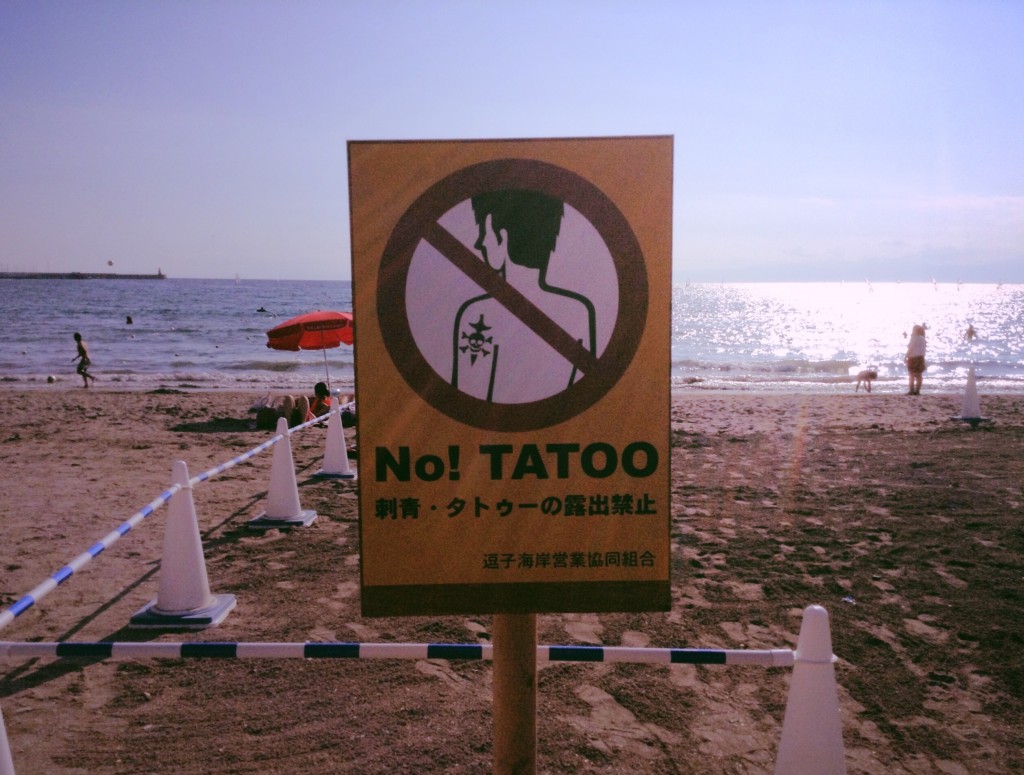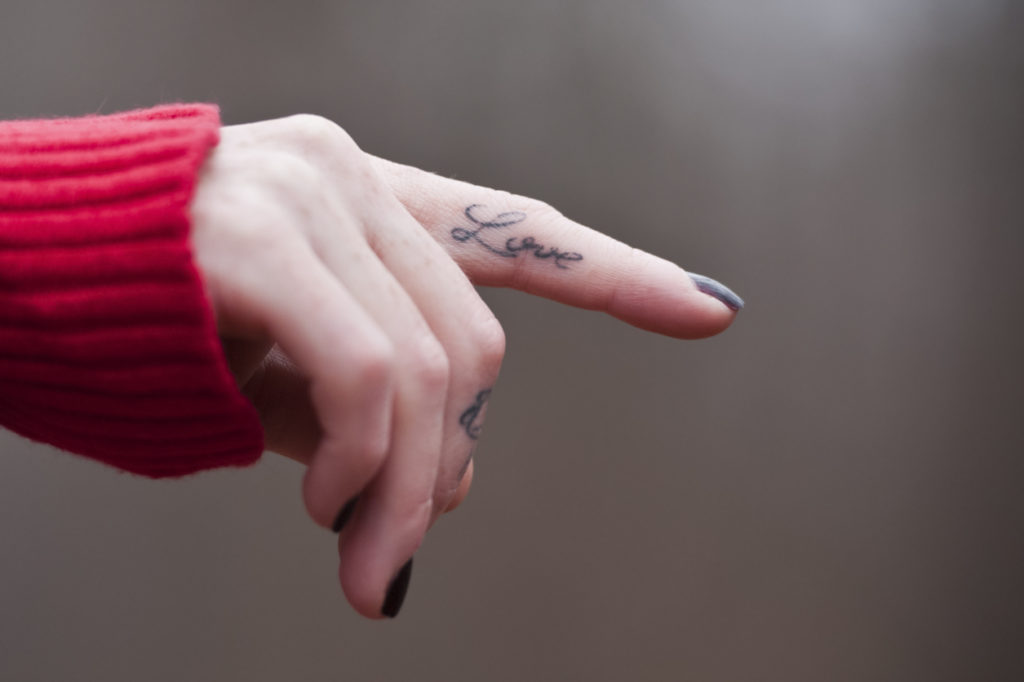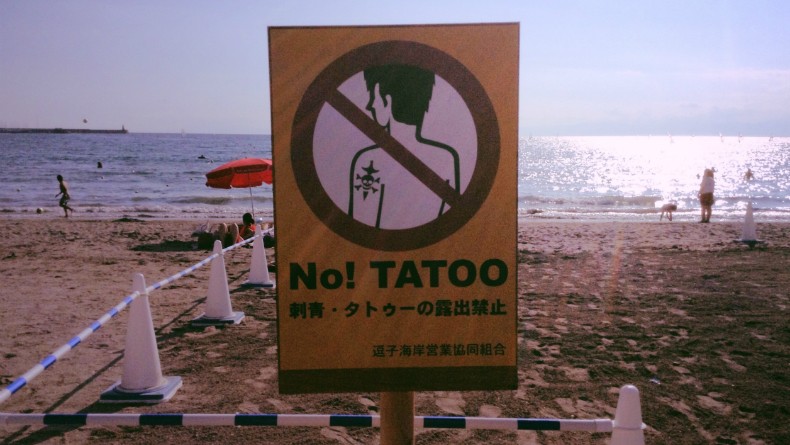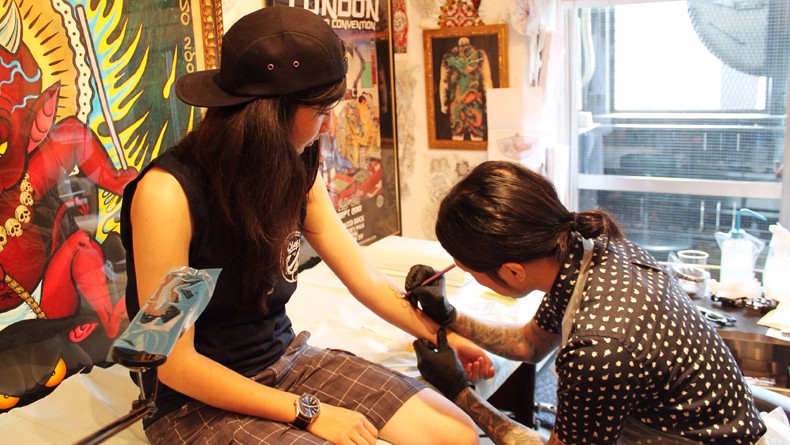Ink And Love: How Can Tattoos Affect Your Relationships In Japan?
Tattooed, Foreign, And A Woman In Japan
The thin line between ink and relationships in Japan.
As a woman with 23 tattoos (21 of which were done in Japan), I am used to getting stared at on the train, and have often been told that I should get them removed if I want to “fit in better” with Japanese society. They’ve had an effect on my relationships as well, which is something that many women might not expect when dating a Japanese man.
Tattoos in Japan: Background

Irezumi are traditional Japanese tattoos done with a needle attached to a wooden dowel manually poked into the skin, while tattoo are western-style pieces, done with a machine needle and ink.
Tattooing itself is hard to date in terms of Japanese history, and there is not a lot of concrete research on its origins. The negative social implications of the ink, however, are said to have begun as early as in the 7th Century, when irezumi was used by the then-Emperor as the first official punishment for rebellion. The rebel, Hamako, Muraji of Azumi, was forced to feel the physical pain of being inked, and carry the punishment on his body as an officially “labeled” criminal. Tattoos continued to become a regular form of punishment for criminals and thereby the Japanese society was led to associate ink with crime, shunning away those who carried prints on their bodies.
[F]or many Japanese tattooing is still synonymous with yakuza, and many businesses still refuse to allow inked people to hot springs, public baths, gyms, beaches, water parks.
Though steadily changing nowadays, for many Japanese tattooing is still synonymous with yakuza, and many businesses still refuse to allow inked people to hot springs, public baths, gyms, beaches, water parks — and even certain jobs. In 2001, the Japanese Ministry of Health, Labor and Welfare classified tattooing as a medical procedure based on the argument that it involves a needle piercing the skin and inserts ink. Based on this law, only people with medical licenses can give you a tattoo. Just this September Osaka fined a tattoo artist for “illegal practice” and violation of this Medical Practitioners’ Law.

Well, well, but with the impending rush of tourists to the Rugby World Cup in 2019, and the 2020 Tokyo Olympic and Paralympics, the Japanese government has told public recreation facilities that if they would like to partake in the financial windfall these events are expected to make, they will need to relax their policies regarding tattoos as well. Some have started already — some gyms now accept tattooed patrons if they can meet their stringent cover-up policies, and numerous hot springs will accept tattooed foreign guests if they are notified in advance, but most water parks and public beaches are still stuck in the Meiji era when it comes to body art. And so are many people, too.
How can ink impact your love life in Japan?
In theory, it shouldn’t be a deciding factor in whether or not you can date someone, but unfortunately for the vast majority of those with body art, it is. While foreign guys with tattoos don’t seem to have many problems getting into relationships (and marriages) with Japanese women, foreign women with larger tattoos might find themselves struggling when it comes to dating a Japanese man.

In the ten plus years I’ve been in Japan, I’ve learned to expect three kinds of reactions from Japanese men: there are those that are impressed, those who instantly back off from you, and those who think that tattooed women are okay for dating, but not a good fit for marriage.
The first group of men usually have tattoos themselves and many of them are more than happy to date someone with tattoos as well. The majority of Japanese men with tattoos that I know have either gotten them while living overseas, or have been interested in tattoo culture and are far more open-minded than others.
The second group is a species of their own kind who are usually conservative and will be straightforward. Many of them associate tattoos with “rebellion,” “excessive sexuality,” and “too much strength” and wish to settle down for women who are the opposite to that. A Japanese acquaintance once went as far as to say that “no real Japanese man would ever marry someone with tattoos” because “she’d probably sleep with everyone in the neighborhood before he got home from work.” Huh!

The final reaction is the most destructive because it can happen without prior warning. While serious relationships take time, compromise, and commitment, having tattoos can suddenly be the straw that breaks the camel’s back in mixed Japanese and western relationships. For some, it may be something as simple as not being able to enjoy a hot spring together as a family, as many men who are otherwise accepting of tattoos might prefer to keep them a secret from their parents — your potential in-laws, who might be old-fashioned and be anti-tattoo.
It could also be the thought of the gossip that mama tomo (those groups of young mothers that gather with their army of baby strollers) could spread about their wife and the odds of it getting back to their work, or affecting their offspring at school, that puts them off taking the relationship to the next step.
One acquaintance of mine, not heavily tattooed, was dating a Japanese man for about four years. She had moved in with him a year prior, and despite issues with her job, had extended her contract and visa to stay in Japan at his behest, when he came home from work one night, sat her down and told her that he couldn’t be with her anymore because “her tattoos would get in the way of his career path.”
I once dated someone that told me that I should have my tattoos surgically removed if I wanted to have his children.
In my case, I once dated someone that told me that I should have my tattoos surgically removed if I wanted to have his children. That, and quite a lot of whispering and snubbed konnichiwa from my own neighborhood’s mama tomo when I first moved in. I felt like a pariah for about six months, but now, I have proven well enough that I’m not associated with any gangs, nor have anything else to make them scared of.
Whatever the reason behind is, be prepared to experience some kind of negative reactions toward your tattoos — be it being kicked out of an onsen or a gym, in more extreme cases, not being able to move on in the relationship with your Japanese man. If you are just getting into the dating scene in Japan and are tattooed, it’s a good idea to clarify your guy’s stance on body ink early in the relationship and talk about its cultural differences and implications. It could save you from some heartbreak or time wasted with the wrong type of Japanese man for you.
Have your tattoos ever affected your relationships with people in Japan? Share your stories in the comments.















